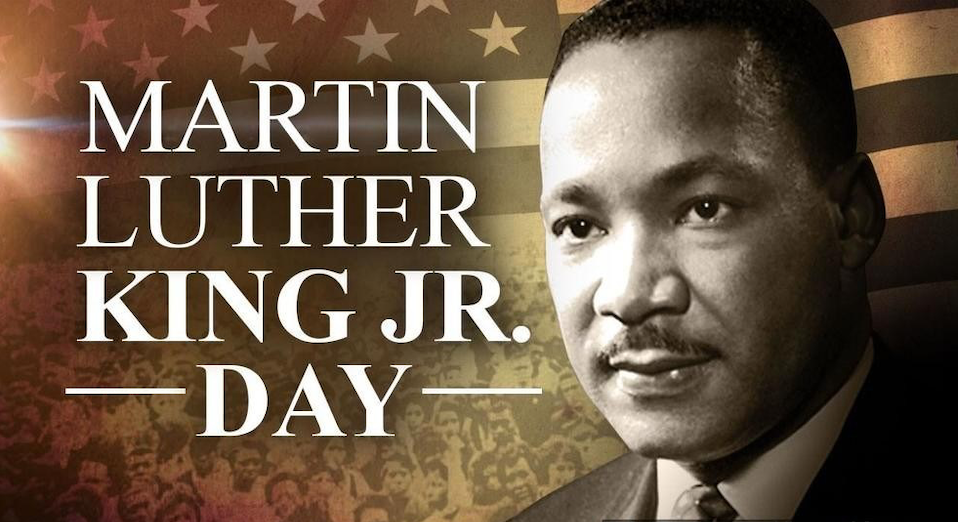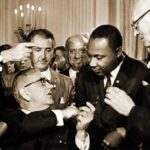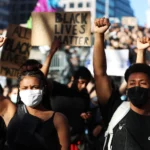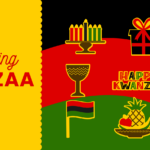Commemorating the Legacy of Martin Luther King Jr.
Martin Luther King Jr. Day stands as a powerful tribute to the enduring legacy of a leader who championed civil rights, equality, and justice. This comprehensive article explores the origins of the holiday, the life and work of Martin Luther King Jr., the significance of the day, its impact on civil rights, and common questions surrounding the celebration.
I. The Birth of Martin Luther King Jr. Day
A. Legislative Milestones
Martin Luther King Jr. Day became a federal holiday in 1986, signifying the culmination of a long and arduous journey to recognize the profound impact of Dr. King’s contributions to the American civil rights movement.
B. Stepping Stones to Recognition
Efforts to establish the holiday began shortly after Dr. King’s assassination in 1968, with grassroots movements and national campaigns urging Congress to officially honor the leader’s legacy.
II. Martin Luther King Jr.: A Visionary Leader
A. Early Life and Education
Martin Luther King Jr. was born on January 15, 1929, in Atlanta, Georgia. His early life and education laid the groundwork for his later role as a prominent leader in the civil rights movement.
B. Montgomery Bus Boycott and Civil Rights Activism
Dr. King rose to national prominence through his leadership in the Montgomery Bus Boycott, and he continued to advocate for civil rights through nonviolent resistance and direct action.
III. Significance of Martin Luther King Jr. Day
A. A Day of Reflection and Service
Martin Luther King Jr. Day is not merely a day off; it is a day on which communities across the United States engage in reflection, education, and service to honor Dr. King’s commitment to social justice.
B. Impact on Civil Rights Movement
The holiday serves as a symbolic acknowledgment of the sacrifices made during the civil rights movement and the ongoing struggle for racial equality.
IV. Common Questions about Martin Luther King Jr. Day
- Why is Martin Luther King Jr. Day celebrated on the third Monday of January?
- The holiday is observed on the third Monday to coincide with Dr. King’s birthday, which falls on January 15.
- What events led to the establishment of Martin Luther King Jr. Day?
- Efforts to establish the holiday gained momentum after Dr. King’s assassination, with grassroots campaigns advocating for national recognition of his contributions.
- How do people typically celebrate Martin Luther King Jr. Day?
- Celebration often involves community service, educational events, and reflections on Dr. King’s speeches and legacy.
- Why is Martin Luther King Jr. considered a significant figure in American history?
- Dr. King’s leadership in the civil rights movement and his advocacy for equality and justice have left an indelible mark on American history.
- What is the connection between Martin Luther King Jr. and the civil rights movement?
- Dr. King was a central figure in the civil rights movement, leading nonviolent protests and advocating for racial equality and justice.
- How does Martin Luther King Jr. Day contribute to the ongoing struggle for civil rights?
- The day serves as a reminder of the ongoing struggle for civil rights and inspires individuals to contribute to the advancement of justice and equality.
- Are there specific traditions associated with Martin Luther King Jr. Day?
- Traditions may include participating in marches, attending memorial events, and engaging in acts of community service.
- Is Martin Luther King Jr. Day a national holiday in the United States?
- Yes, Martin Luther King Jr. Day is a federal holiday observed across the United States.
- Do schools and businesses close on Martin Luther King Jr. Day?
- Many schools and businesses close to honor the holiday, allowing individuals to participate in events and reflect on Dr. King’s legacy.
- How does Martin Luther King Jr. Day promote social justice and equality?
- The day promotes social justice and equality by encouraging awareness, education, and engagement in activities that address ongoing issues related to race and discrimination.
- What impact did Dr. King’s “I Have a Dream” speech have on the civil rights movement?
- The speech, delivered during the 1963 March on Washington, became a defining moment, rallying support for civil rights and inspiring a nation to work towards equality.
- Are there controversies surrounding the celebration of Martin Luther King Jr. Day?
- Controversies may include debates on the proper way to commemorate the day and discussions about whether the goals of the civil rights movement have been fully realized.
- How has Martin Luther King Jr. Day evolved since its establishment?
- The day has evolved to encompass a broader celebration of Dr. King’s contributions, emphasizing education, community service, and continued advocacy for justice.
- Are there international celebrations or recognition of Martin Luther King Jr. Day?
- While it is a federal holiday in the United States, some international communities hold events to honor Dr. King’s global impact on human rights.
- What role did Martin Luther King Jr. play in shaping civil rights legislation?
- Dr. King’s leadership played a crucial role in the passage of key civil rights legislation, including the Civil Rights Act of 1964 and the Voting Rights Act of 1965.
- How does Martin Luther King Jr. Day contribute to education about civil rights in schools?
- Many schools use the day as an opportunity to educate students about the civil rights movement, Dr. King’s contributions, and the ongoing fight for justice.
- What is the Martin Luther King Jr. National Memorial, and where is it located?
- The memorial, located in Washington, D.C., honors Dr. King’s legacy and contributions to the advancement of civil rights in the United States.
- Are there ongoing efforts to expand the impact of Martin Luther King Jr. Day?
- Yes, organizations and individuals continue to advocate for expanding the impact of the day through increased education, community engagement, and legislative initiatives.
- How does Martin Luther King Jr. Day intersect with other social justice movements?
- The day intersects with various social justice movements, serving as a reminder of the interconnected struggles for equality and justice.
- What are some recommended readings or resources for learning more about Martin Luther King Jr. and his legacy?
- Recommended readings include Dr. King’s writings, biographies, and resources provided by educational institutions focused on civil rights history.
Conclusion: A Day of Reflection and Inspiration
In conclusion, Martin Luther King Jr. Day is a poignant occasion that transcends mere celebration, urging individuals to reflect on the enduring legacy of a leader who dedicated his life to the pursuit of justice and equality. By exploring the origins, significance, and common questions surrounding the day, we continue to honor Dr. King’s vision and contribute to the ongoing journey toward a more just and equitable society.





